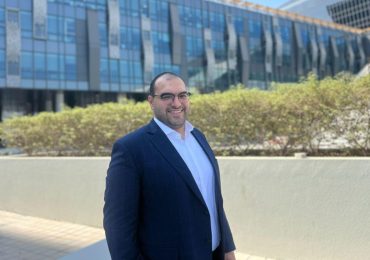Photo Courtesy of Milind Cherukuri
Generative AI adoption is skyrocketing, bringing many opportunities and challenges. One area that often lacks clear methods is prompt engineering. Many organizations still depend on trial and error to design prompts. Milind Cherukuri, a Salesforce business analyst and AI researcher at Caris Life Sciences, works to provide structured approaches and practical tools to improve this process.
Cherukuri balances his healthcare technology role with AI research that helps engineers and developers build more efficient systems. While working at Caris, he creates automated workflows supporting oncology, compliance, and clinical teams. His Salesforce solutions have improved data accuracy, cut response times by 30 percent, and simplified physician onboarding. Deloitte projects that AI integration will reduce healthcare operational costs by up to 20 percent, highlighting how advancements like these drive measurable financial and efficiency gains through strategic implementation.
Cherukuri’s work aligns with a broader shift in healthcare toward systems that improve efficiency, streamline operations, and reduce costs through smarter automation.
Moving Prompt Engineering From Guesswork to Data-Driven Practice
Many teams still rely on trial and error when designing prompts. However, experts caution that prompt engineering is a complex and context-dependent process. Studies suggest that the effectiveness of prompts can vary significantly based on the specific application and model, underscoring the need for structured approaches like Cherukuri’s to navigate these challenges.
Cherukuri’s 2024 study, published in the International Journal of Science and Applied Technology, compares zero-shot, few-shot, and chain-of-thought prompt formats by analyzing cost, accuracy, and reliability. Teams using his framework have reduced their language model usage costs by as much as 35 percent.
Applying Engineering Skills to Real-world Systems
Milind Cherukuri gained technical skills through roles at Amazon and Infor, where he improved backend systems supporting internal tools and enterprise operations worldwide. These experiences taught him how to build scalable, efficient solutions under real-world constraints.
With this experience, he works to improve clinical workflows at Caris Life Sciences. He redesigned approval processes, implemented validation rules, and automated data cleanups to strengthen governance and enable smoother operations scaling.
Research That Addresses Practical Challenges
Milind Cherukuri has published five research papers on key AI and software engineering challenges. His paper Cost, Complexity, and Efficacy of Prompt Engineering Techniques for Large Language Models (IJSAT, 2024) benchmarks prompt strategies to reduce costs while maintaining performance.
The growing importance of prompt engineering is reflected in the job market, with positions in this field commanding salaries up to $335,000 annually, highlighting the high demand for expertise in crafting effective AI prompts.
Another study, Exploring Multidimensional Sentiment Analysis, introduces models that detect overlapping emotions in text, improving AI applications in mental health and communication. He analyzed deep learning methods used in medical imaging diagnostics in Comparing Image Segmentation Algorithms (ICDSCA 2024). His development of WebChecker: A Versatile EVL Plugin for Validating HTML Pages With Bootstrap Frameworks (arXiv, 2024) helps developers automate UI testing and reduce quality assurance time by 40 percent.
Lastly, he proposes governance models to improve the transparency and safety of language model development in Advancing AI Safely: Frameworks and Strategies for the Development of GPT-5 and Beyond (EEET 2024). Each paper provides actionable solutions to challenges AI teams and software engineers face.
Recognition and Continued Contribution
IEEE recognized Milind Cherukuri as a senior member in 2025, honoring his technical expertise and contributions. He serves on the editorial board of the CS Science and Engineering Journal and reviews journals, including Jabari, AI for Our Planet, and the Journal of Imaging. These roles enable him to support academic standards and promote responsible research.
Cherukuri regularly presents his work at international conferences. His keynote at EEET 2024 in Malaysia focused on language model safety and transparency. He shared his research on medical imaging models at ICDSCA 2024. Through IEEE workshops, he mentors early-career researchers on ethical AI publishing.
Building Clear and Accountable Systems
Milind Cherukuri focuses on tools and processes, prioritizing clarity, consistency, and measurable results. He ensures that AI systems built with his frameworks are easier to test, maintain, and improve.
“We have to start building as if scale and accountability both matter,” Cherukuri says.
This principle guides his strategy to engineering, research, and mentorship. Milind Cherukuri builds systems that promote responsible and effective AI development, from healthcare automation to model evaluation.
















